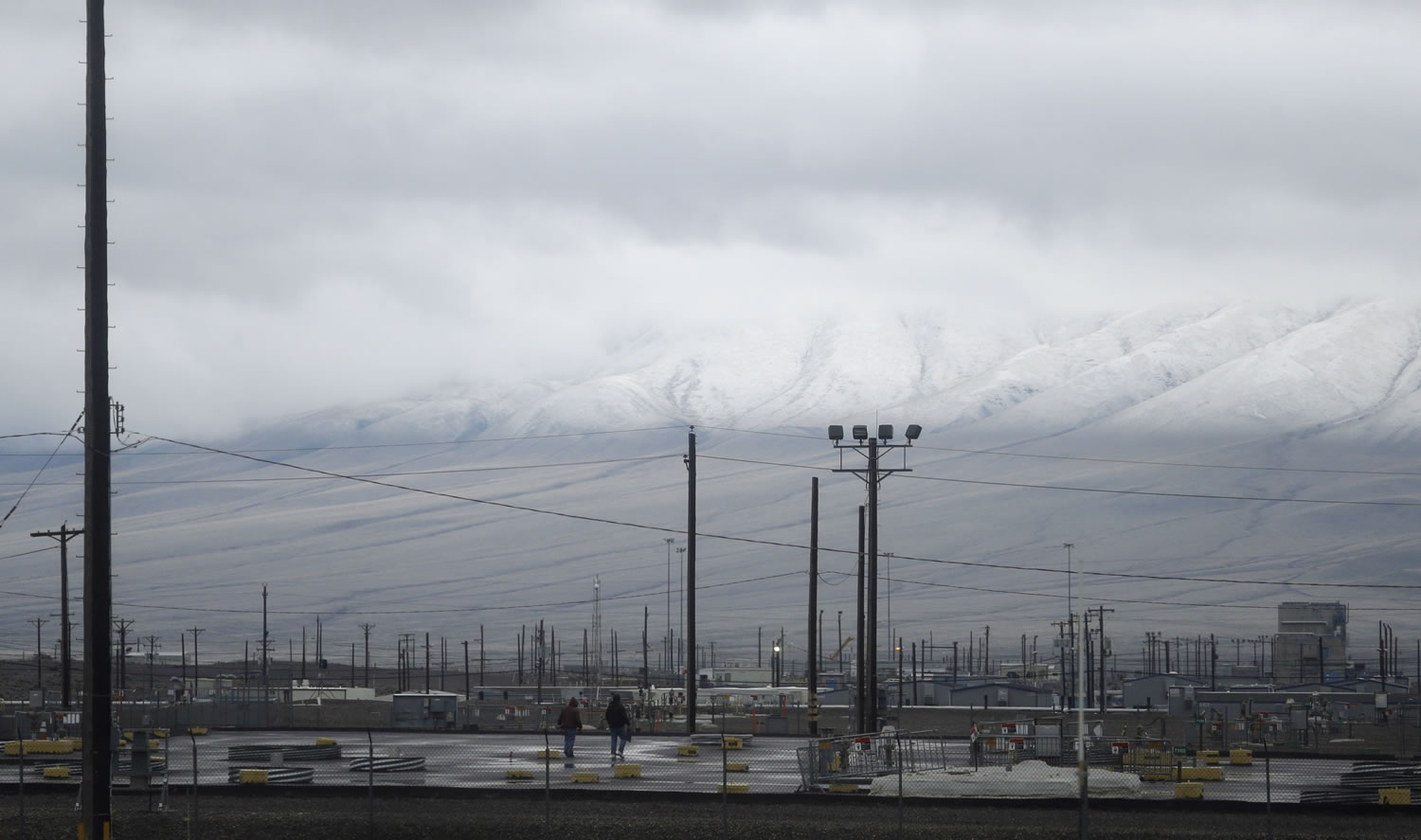YAKIMA — Pink slips went out Monday to nearly 250 workers — and more than 2,500 others were notified that they face furloughs of several weeks — at the nation’s most contaminated nuclear site, where cleanup is likely to be slowed because of automatic federal budget cuts.
About 9,000 people work at south-central Washington’s Hanford Nuclear Reservation, which produced plutonium for the U.S. nuclear weapons arsenal beginning in World War II and through the Cold War. Today, underground tanks are leaking waste, and several companies are contracted to clean up the highly contaminated site.
Exactly what cleanup work at Hanford will be slowed remained unclear Monday. Many of the affected workers are union employees who can bump less-senior workers elsewhere at Hanford. However, most of the large Hanford contractors also notified hundreds of nonunion employees that they will be furloughed.
Washington Gov. Jay Inslee expressed concern Monday, saying the layoffs and furloughs are occurring “at precisely the wrong time.”
State and federal officials have said that six underground tanks, holding a stew of toxic, radioactive waste, are leaking at Hanford. That news makes the lost work hours there all the more concerning, Inslee said.
“These lost jobs and work hours will adversely impact families in the Tri-Cities, and will harm economic recovery in the region,” he said. “Now is no time to scale back federal commitments to protecting public and environmental health in our state.”
The federal government created Hanford in the 1940s as part of the top-secret Manhattan Project to build the atomic bomb. Today, it is the nation’s most contaminated cleanup site, with the cleanup effort expected to last decades.
Central to that work: the removal of millions of gallons of waste, stored in 177 underground tanks. Many of those tanks are known to have leaked an estimated 1 million gallons into the soil in the past, but the six new leaking tanks have heightened concerns about potential delays to the cleanup.
Washington River Protection Solutions, the company tasked with emptying those tanks, notified 37 union employees that they were being laid off Monday, company spokesman Jerry Holloway said. Another 33 workers are expected to be bumped by more senior workers from other Hanford contractors, he said.
Nuclear operators, who move waste between tanks and pump it out, are among those hardest hit, he said.
In addition, Holloway said the company’s roughly 900 nonunion employees will be furloughed for varying lengths, ranging from 2.5 weeks to 6.5 weeks.
Work to evaluate the leaking tanks and to inspect other tanks will continue, he said.
The Department of Energy’s Office of River Protection, which oversees tank cleanup, as well as a contractor hired to build a plant to treat the tanks waste, said its budget had been cut by $92 million. That money will largely come from tank cleanup, because the plant has an established design and construction budget of $690 million this year.
The Energy Department’s Richland Operations Office said its budget will be reduced by $79 million. That office oversees three contractors and numerous subcontractors responsible for cleaning up the Columbia River corridor, tearing down buildings, mothballing nuclear reactors, treating contaminated groundwater and digging up contaminated debris and soil.
Agency spokesman Cameron Hardy said more than 200 employees will be laid off from those three contractors, and more than 1,700 employees will be furloughed for about five weeks.
The U.S. government spends some $2 billion each year on cleanup at Hanford — one-third of its entire budget for nuclear cleanup nationally.
The cuts within the Energy Department’s budget are the result of debate in Congress, where Republicans and President Barack Obama are fighting over how to curtail the nation’s debt.



